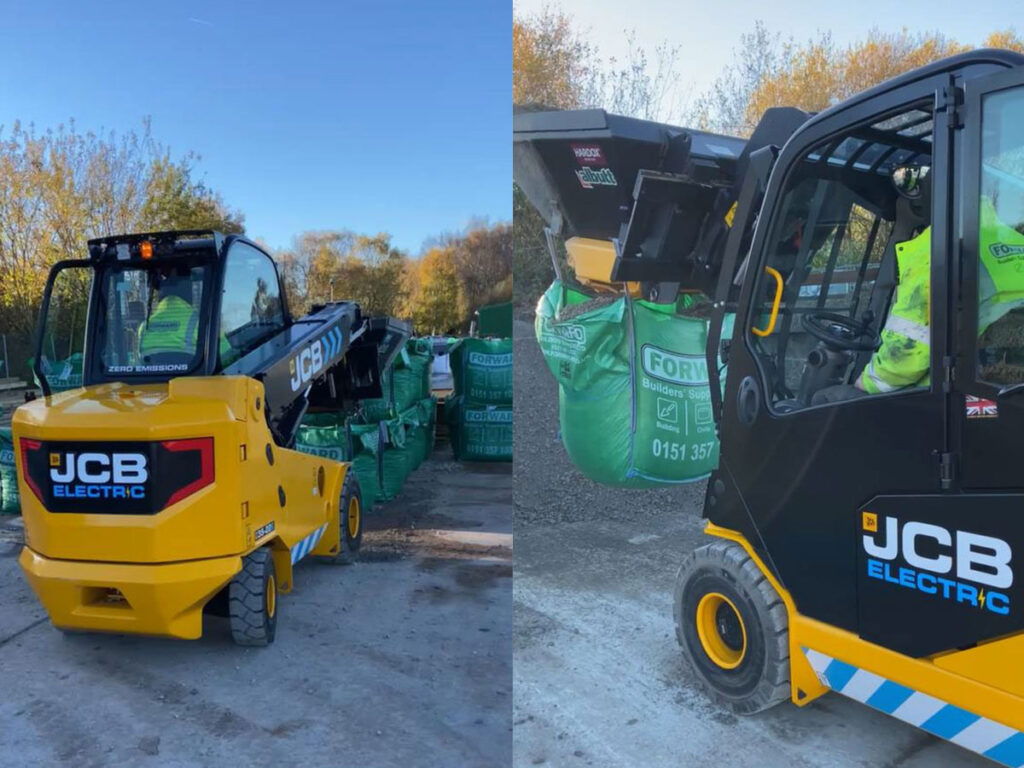A younger perspective
BMJ joined a conversation between three younger Partners, chatting about developing younger people through the industry.
Look who’s talking

Lauren Penney
Operations & Marketing Manager Chandler
Materials Supplies

Ed Parlato
Branch Manager Browns Builder’s Merchants

James Scott
Manager Professional
Traders Ltd.
BMJ: Has the industry changed how it views younger people coming in?
LP: I’ve found that the more established people in the industry are really quite open to the younger, newer ones. They love to bring you along with them.
EP: I agree. They’re really happy to share the experience that they’ve developed through their time in the industry. They might see you as a younger person, but they don’t talk down to you. It’s more like, they’re thinking: “OK I’ll talk to this youngster and maybe share something that will help them come along.”
I think other industries might suffer from people pulling up the ladder as they go off to higher things, but this one feels very much the opposite. They’ve made all the same mistakes and there’s a real feeling of trying to help us, as the younger generation, not to make the same ones.
LP: The campaigns to try and open up the industry to younger people are going to be really helpful, I think. It’s really good to finally see that we are actually doing something. Now, I feel like we talked about it for so long and it’s a really positive step that BMF has started the campaign and we are trying to attract young and new talent.
When I first joined the industry, I think it was fair to say that it was mostly made up
of middle-aged men. There weren’t many youngsters in leadership positions and few women. I think we still have a long way to go, but it’s good that we are starting to take steps in the right direction. I think at the Conference this year we can see that there are more young people walking around. And that’s really encouraging to see.
JS: One of the best things about this industry is that so much of it is based on friendships and on good, solid relationships. Anyone who is something of a social butterfly will thrive in this sector. You just have to be a people person. If you are, then somebody will help out if you need it, not just because they’re being sociable, but because they want you to do well.
What’s great is that there are so many things to get involved in and that builds your knowledge, not just about the industry, its structure and the products, but also the people. I came to my first NBG Conference last year and this year I have seen so many more people that I know to say hello to.
EP: I think that’s one of the big differences to previous years: the number of younger people that the Partners have brought with them to the event. In the past, it would have been the Suppliers. Because they might come with four people, they have the chance to bring one of their younger Account Managers, or newer Directors. This year, we’ve seen the merchants get younger as well.
“Sometimes I think we’re too quick to say: “Oh, you know, they’re gen Z, so they don’t know anything”, but actually you just need to find the right way to work with them.”
Lauren Penney, Chandler Materials Supplies.
BMJ: Have you seen any issues within your own businesses to do with being the younger ones, or bringing younger people in?
JS: There is a bit of a…let’s call it a knowledge prejudice. It’s not necessarily on purpose, but people can assume that you don’t have the knowledge. Yet we’ve come into the industry to learn about it and we are learning in the same way that every new person did. It’s more a general assumption that someone older will have the knowledge.
LP: I think in my business, we’ve worked really hard to try to break that. And even within management of the business – the people that make the decisions – when I was first starting out, I had to fight quite hard to get my voice heard. But after a couple of times of it being heard, it’s less of a fight now. Once you earn your place and earn the respect, the age doesn’t really matter.
EP: It’s interesting that we all have that to a certain degree. We’re bringing younger people through now and we know we have to learn how to manage them in the same way that the older generation had to learn to manage us. I’m in my mid-30s and when I talk to my peers, they all say that they have issues with some of the younger members of staff. Usually that revolves around the feeling that when you get them to do something they do it well, but you almost have to keep feeding them. The key is working around that slightly different mentality. They’re not going to be exactly like I was when I was coming through because they’ve had a different journey to get there.
JS: This is something that we all, at whatever stage of the business management we are at, have to learn to adapt to.
LP: It’s a learning curve, isn’t it.
EP: Absolutely. As much for me as it is for them. I’ve got to try to teach them in a way that they respond to.
JS: The key is recognising the difference between the types of people. Someone who can be managed well is just as good, just as productive as someone who is a real self- starter who works hard on their own. If you can point someone in the right direction and support them, that builds their proactive sense of development. I’m learning that myself: to be more proactive. The busier you are, the more you learn. The more you learn, the more you will find to be busy with.
LP: One thing that we may underestimate with gen Z, is that they don’t necessarily understand what is expected of them, not at first. I started work when I was 13 because it was a family business. I came in at weekends and started cleaning the toilets, so I’ve worked my way up and I’ve worked for a very long time.
Some of our younger people, it could be their first job. So they might not know at first exactly what’s expected of them – I think we can take it for granted that they do. Sometimes we think: “Well, we can do it, so they can do it,” but actually in some cases, they just need the right guidance. They need us to say: “You work from seven till 12, then you have your lunch break, then you work from 12:30 to five”. But they need that guidance that they’ve never had before, because they’ve never worked anywhere else. I think we can be too quick to judge. It’s about setting and managing expectations, yours as much as theirs.
EP: We want them to intrinsically know what you expect of them, but that’s not realistic. We needed guidance and so do the younger people coming through. You need to give people the expectations and with clear guidance they will probably get on better.
LP: I find that you only have to do that once. You set the expectation that it’s done and they just pick up on it and follow it. Sometimes I think we’re too quick to say: “Oh, you know, they’re gen Z, so they don’t know anything”, but actually you just need to find the right way to work with them. We’ve all experienced it. I wasn’t perfect when I was a teenager. I probably wasn’t the most productive person and then I often find myself forgetting that.
JS: At the same time, when we do give younger people responsibilities then we have to make sure that other people around them understand what that youngster’s role is too. It’s very easy for maybe young people to come into the industry and wonder: “Should I be asking this older person to do that?” Yes, they should, if that is what the role is. So I think that’s where being proactive and getting involved really helps – when people in the business can see that you understand your role, that you want to grow into it and develop.
“The key is recognising the difference between types of people. Someone who can be managed well is just as good, just as productive as someone who is a real self-starter who works hard on their own.”
James Scott, Professional Traders Ltd
BMJ: Should we be trying to encourage more younger people into the industry?
EP: Definitely. Though it’s important to say that new entrants shouldn’t necessarily be limited to the younger generation, or just to school or college leavers who are at the start of their careers. Those who want to switch careers or sectors at any stage could really add to our businesses because they bring with them a wider experience.
JS: We need to be encouraging all these people to think of this industry as vibrant
and full of career potential. We’re not that different to a high-street chain really, when you think about it. We are a company that’s selling a product. Every business in this sector has a need for a wide variety of roles, all requiring their own skill sets. It could be accounts, marketing, finance, logistics. Just because you’re not directly on the trade counter, you’re still playng a major role in the industry.
LP: Maybe sometimes those of us in the more visible areas don’t appreciate those other roles as much as we think we do. Take some of the people in our back offices; if they weren’t there, the business wouldn’t run. We need to sell all the jobs within, sell the whole industry, because there are so many different roles that suit so many different people and such a range of aptitudes.
JS: People my age might see a job in hospitality and pubs as a great role, but we can sell our benefits to them as well. We may have to start work at 7.30am, but then we are closing at 5pm. There’s the odd Saturday shift, sure, but we’re not making people work their Friday or Saturday nights. I feel like we should be able to highlight the fact that the building materials sector is a really steady industry – it’s been here for years. It doesn’t make you work all weekend and there is a whole range of areas that you could specialise in if you want to.
EP: People are always going to need houses and I think that’s something that’s really important to push when we’re highlighting these jobs that you wouldn’t necessarily think about – the back-office jobs, the marketing, the finance, the logistics, the sales. It’s really vital that any industry promotion we do highlight that building materials is diverse, vibrant, stable and not going to disappear as a sector.





